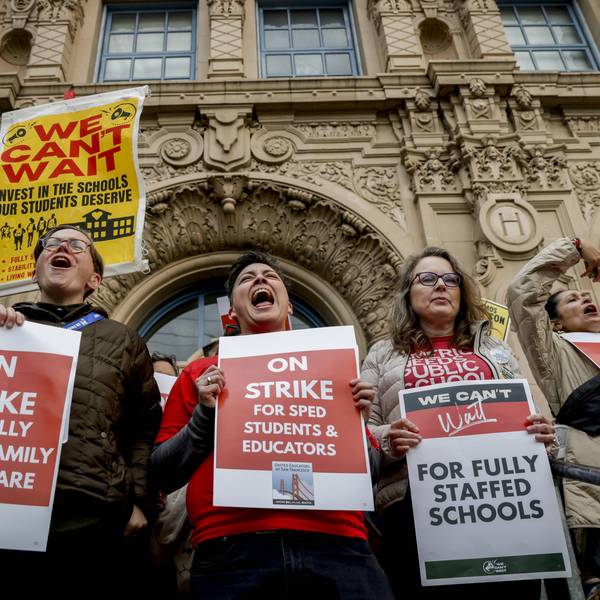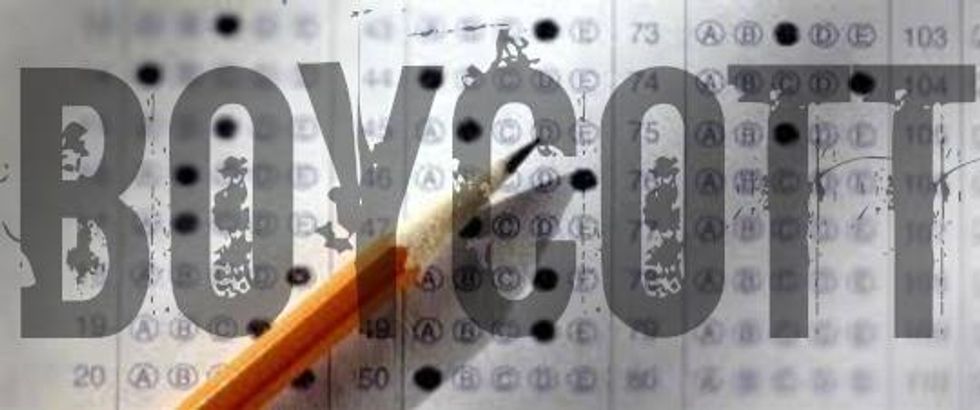Seattle teachers who took a strong and public stance by refusing to administer a "flawed" but mandatory standardized test earlier this school year are celebrating a victory after an announcement by the school district saying the Measures of Academic Progress (MAP) test will not be given to high school students next year.
"Finally, educators' voices have been acknowledged," said teacher Jesse Hagopian, who teaches history at Garfield High School in Seattle where the boycott movement began. "This is a great moment in the movement for quality assessment."
"The teachers at Garfield are overwhelmed with joy," Hagopian said. "I think this is a real vindication of the movement that was started at Garfield High School by teachers but was quickly joined by parents and students at our school, and around the city, and really around the country."
The district's decision was announced in a letter sent to school administrations throughout the city on Monday and followed on the recommendations of a review panel that looked at the testing regime and determined it was not "effective for high school-age students."
As local NPR affiliate KUOW reports:
The district requires that students in Seattle Public Schools take the MAP test in reading and math two or three times a year, from kindergarten through ninth grade or beyond, to measure students' progress throughout the year.
In January, teachers at Garfield High School announced they were boycotting the MAP test schoolwide, calling it a waste of time and money that doesn't give teachers useful information.
Smaller groups of teachers at other Seattle schools joined the boycott, as did many students and their families.
The protest got international attention and support.
The decision was welcome, but Hagopian told local reporters the "struggle is far from over."
Though the test will now be "optional" for high schools in Seattle, students from kindergarten to eighth grade will still be required to take the twice-annual assessment despite strong feelings by teachers that the test is an enormous drain on resources, class time, and real learning.
The Seattle Times reports:
The protesting teachers, who number in the hundreds at six different schools, say the MAP tests have little value for them or their students, monopolize school libraries and computer labs for weeks, and aren't closely tied to what they're supposed to be teaching.
The majority stress that they're not against testing per se, just the MAP.
Parents and students joined in, and 600 students did not take the MAP because they or their parents asked that they be excused. Spring testing is still under way.
Despite the protest, schools are still giving the tests by using administrators or parents or others to proctor the exams.
Students from kindergarten through ninth grade in Seattle have been taking the MAP reading and math tests two to three times a year for four to five years, depending on the school.
That, of course, means purchasing the exam from the testing company, which Hagopian and other teachers say is just one more reason to abandon the expensive testing that educators increasingly see as money ill-spent.
Hagopian indicated to KUOW that "buying the test again this year would divert dollars he'd rather see used approaches he says genuinely improve student learning, like tutors, smaller class sizes and reading coaches."
_____________________________________________________________




